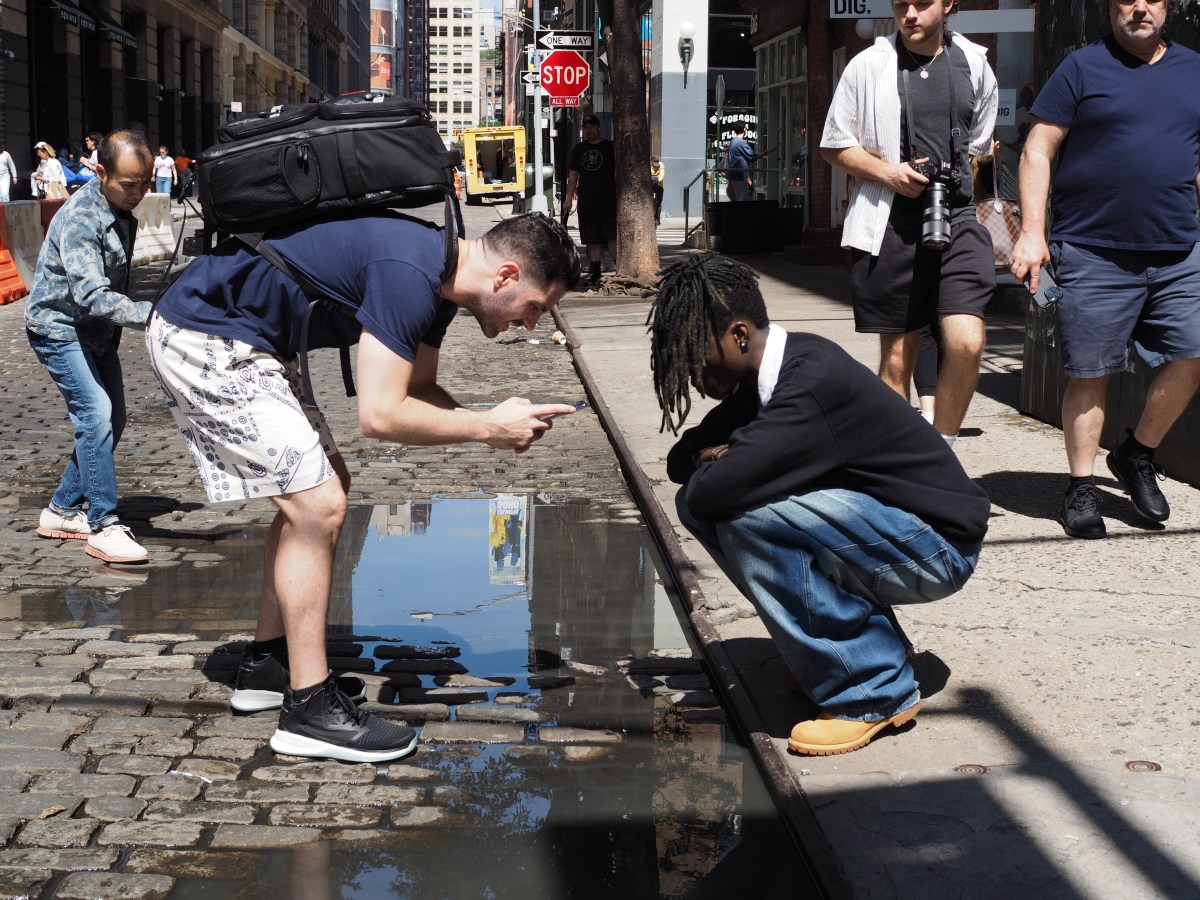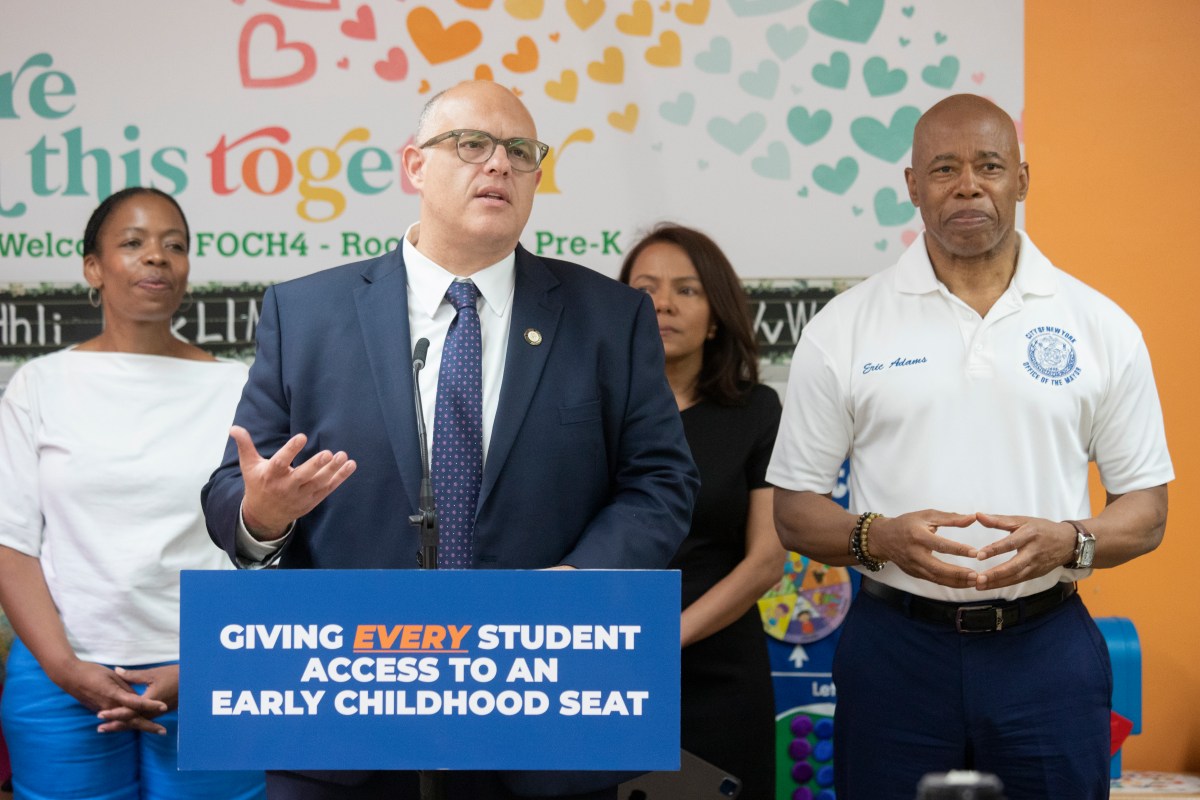New York City is hitting a soft reset on its popular universal pre-kindergarten and preschool programs as the two have for years been plagued by long wait lists and a lack of available seats for the communities most in need, city officials announced Thursday.
Yet early childhood education advocates criticized the effort as being “old news” and having “no details.”
The 10-point roadmap for revamping the programs — known as universal pre-K and 3-K — was developed by a joint working group comprised of top officials in Mayor Eric Adams’ administration and City Council leadership. The plan lays out several previously announced steps aimed at improving outreach and better allocating open seats for the programs throughout the five boroughs.
It comes as public schools are set to kick off the academic year next week.
“We are announcing a $100 million investment in a historic plan to fix lingering problems and improve our system,” Adams said during a Brooklyn news conference on Aug. 29. ”This is a reimagining of the entire early childhood education system from the ground up.”


The working group was established as part of the Fiscal Year 2025 budget deal reached by the mayor and council in late June, which included $100 million to fund the plan. It was formed following criticism over the past couple of years that the Adams administration was not doing enough to address the longstanding issue of families in lower-income parts of the city struggling to place their children in seats.
Adams also faced criticism for making substantial cuts to planned expansions of the pre-K and 3-K in recent years.
The plan includes several previously announced initiatives, such as utilizing $5 million to boost outreach to underserved corners of the city, working to reduce the waitlist for special education early childhood slots by bringing an additional 450 seats online this fall and providing free extended hours for nearly 2,000 families enrolled in the two programs.
This effort will be carried out by the Department of Education, the Mayor’s Office of Child Care and Early Childhood Education and the City Council.
“We’re going to hit the streets, meet people where they are, and take them where they ought to be, and not expect them to do it alone,” Adams said of the stepped-up outreach effort. “This is essential to ensure that all families are aware of the early childhood education opportunities and how to apply.”
‘Nobody has seen’ the outreach
However, Rebecca Balin, executive director of the group New Yorkers United for Child Care, blasted the mayor for not offering more details on many of the plan’s key components.
“They’re saying they’re doing outreach, nobody has seen it,” Balin said in an interview with amNewYork Metro. “The other thing that’s really concerning is that he’s saying that there’s full-day, full-year seats, but no details. When are we going to find out about where those seats are going? I mean, the first day of school is around the corner.”
The mayor also noted that all of the roughly 2,400 families who applied for slots in 3-K on time and did not get one in the spring have now received offers. Furthermore, he said the city has added 1,500 3-K seats in “high-demand” areas across the city since the budget was passed.
“We upheld our commitment to make sure that every single child who wants a seat has access to a seat,” Adams said.
But Balin pushed back on those remarks as well, arguing that is not what her organization has heard from many parents.
“They’re saying parents have gotten seats,” Balin said. “Meanwhile, we are still hearing from parents who have either not gotten a seat yet, got seats that they didn’t even list in their top 12, seats that are too far away, or seats that they found out too late, and they already put down thousands of dollars of deposit money for private [programs] so their kid had somewhere to go.”
